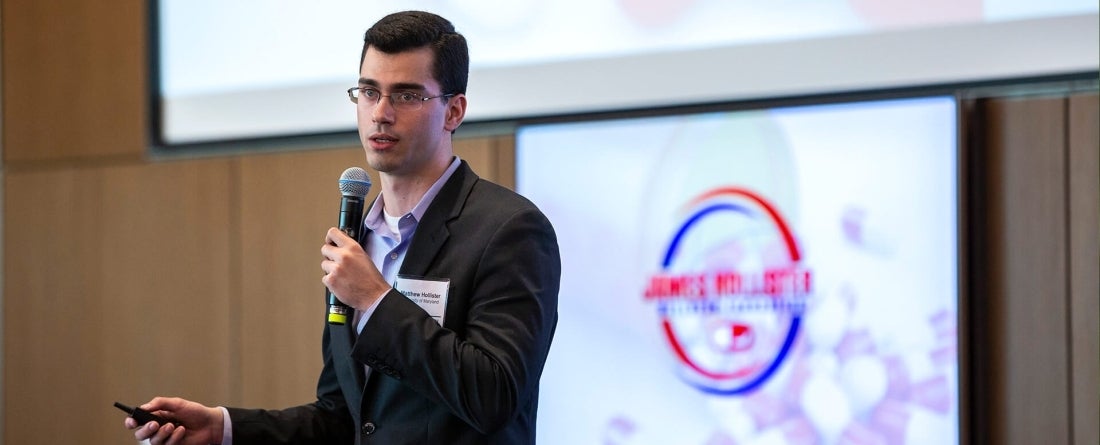
Leaders of Universities Around the World Confront Issues of Nationalism, Commit to New Collaborations
*Please note, this article originally appeared in Maryland Today.
The University of Maryland's Do Good mission may be going global after student entrepreneurs providing medication and agricultural best practices to those in need wowed presidents from leading research universities spanning six continents.
The presentations by Terp students and recent alumni—and the on-the-spot commitments from university presidents to support their endeavors—were among the highlights of the Universitas 21 annual general meeting, which UMD hosted Tuesday through Friday for the senior leaders of 27 prestigious universities.
This gathering, which in recent years took place in Melbourne, Australia and Singapore, brings together members of Universitas 21 (U21) network annually around a common theme to improve higher education globally.
This year, UMD set the theme “Globalization, Isolationism and the Response in Higher Education.” Nationalistic politics are on the rise across the world just as the challenges facing the planet are becoming increasingly urgent, President Wallace D. Loh and other UMD leaders said, intensifying the need for networks like U21 to expand their collaborations.
“This rise of nativist populism is an existential threat. It challenges the soul and heart of the democratic values that underlie an academic institution,” Loh said at the Presidential Symposium. “I don’t know what the solution is. I do know that this is a crying need [that] all of us as members of leading research universities need to address.”
The enthusiastic offers to help expand the global footprints of ROOTS Africa and the James Hollister Wellness Foundation, both launched through UMD’s Do Good Institute, illustrated the impact that the network can create.
“What’s to stop us committing to join you?” Professor Peter Mathieson, vice chancellor of the University of Edinburgh, asked of the presenters. “If you’re open to us joining, personally I’ll commit the University of Edinburgh to look at these … The network is always looking for ways in which we can be greater than the sum of our parts.”
U21 further plans to expand on UMD’s Do Good mission by introducing its own virtual challenge across the network next year.
“Values in many of our countries, many of our cultures, are being challenged,” said Sir David Eastwood, president of U21 and vice chancellor of the University of Birmingham. “We serve as custodians of those values if we stand together. And U21 enables that. We're going to explore the ways, as a network, that we can enhance our efforts.”
Membership in the U21 network has broadened opportunities for Maryland students, faculty and staff through international education and research. UMD has sent nearly 500 undergraduates on exchange to U21 institutions and hosted almost an equal number of their students in College Park.
U21 universities further collaborate through the Office of International Affairs’ Global Classrooms, which are virtual, project-based courses that allow students to learn and network globally without leaving College Park. UMD faculty work with the University of Johannesburg in South Africa on comparative studies of the black middle class, and with the University of Queensland in Australia on hypersonics technology, among other partnerships.
To continue reading this article, please click here. The original article was published on Maryland Today on May 6, 2019, and was written by Sarah Marston.
